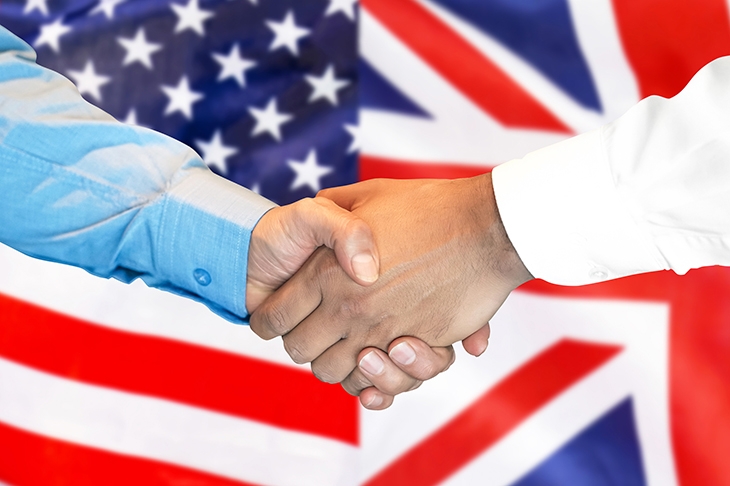Besides being important in themselves, the trade talks between Britain and the United States which began this week are symbolic of the opportunities that should become available as we leave the European Union. For years we have dealt with the US, our biggest single customer, under burdensome tariffs and other regulation — but we had no choice. The EU handled trade policy and it never succeeded in completing a trade deal with any of its major trade partners. Britain, by contrast, has always been more global than Europe in its outlook. The vote for Brexit was, among other things, a vote to raise our sights to more distant horizons.
At the time of the referendum, a bilateral trade deal with the US looked unlikely for political reasons. Barack Obama notoriously declared that Britain would be ‘at the back of the queue’. But the mood in Washington has changed, and a trade agreement with Britain is now in the political interests of the President, who has said he is looking forward to a ‘major’ deal, as well as of the Republicans in Congress, led by Paul Ryan. Trade deals are easier to strike when there are just two countries in the talks, which is why Switzerland on its own has managed to establish agreements with Japan and China.
The tragedy of the EU is that a good number of its members, especially the northern ones, are open to the idea of more trade. The EU sought to do a deal with the US through the Transatlantic Trade and Investment Partnership, but struggled to satisfy 28 countries plus the various lobbies with a direct influence on Brussels. The EU’s announcement of a ‘trade deal’ with Japan earlier this month turned out to be a piece of political window-dressing. The agreement was in fact a premature announcement on a tortuous path which may or may not lead to a genuine deal in a couple of years’ time.
Without Britain, the EU looks set to become even more protectionist. It emerged this week that Jean-Claude Juncker is seeking greater powers to block Chinese investment in Europe after Midea, a Guangdong-based manufacturer, bought Kuka, a German robotics maker, last year. In a recent options paper, the European Union has proposed a tax on financial transactions, known as a Tobin tax. Britain would always have vetoed this. To tax, regulate and exclude and to hoard power in Brussels are sure ways of making Europeans poorer, and less free.
Having chosen a different path — the freedom to strike more trade deals with the rest of the world and to manage globalisation better — Britain now faces new opportunities and, with them, challenges. The main question now is how much free trade we want — and this is a debate where protectionist voices are once again being heard. Rather than focus on the opportunities, much of the talk this week has revolved around the prospect of British consumers being hoodwinked into buying US chicken whose carcasses are washed with chlorinated water to kill bacteria. This has led to fears in Britain about ‘chlorinated chicken’, a phrase almost unknown in America, where this is perfectly normal.
Michael Gove, the Environment Secretary and a leading Brexit advocate, this week agreed that he would draw the line at chlorine-washed chicken, which has been banned by the EU since 1997. Yet the European Food Safety Authority has itself ruled that it is perfectly safe. And American farmers sell a great deal of chicken that is not chlorinated. The ban is a protectionist measure against American farming dressed up as a food-safety issue.
Trade deals will result in life becoming more difficult for some industries. But that has to be balanced against the greater opportunities which will be available to exporters. For instance, there will soon be hard questions about whether the sugar-growers of Norfolk should be protected against sugar cane from Australia, another country keen to sign a free-trade deal. Will the government cleave to the EU levies in imported sugar, which benefit sugar growers but hinder Britain’s sugar refineries?
It has been four decades since any minister in Britain had control over trade policy; so long that the Tories have forgotten how to argue about the subject. Now, confronted with the genuine prospect of a free-trade deal with the world’s largest economy, Brexiteers must decide how much free trade they can handle. In last year’s referendum, the public gave the government an instruction to leave the EU. For all its risks, Brexit offers Britain a great opportunity to embrace the wider world. Australia, Brazil, Israel and the United States of America have been among the first to offer the hand of trade partnership. It would be unfortunate if a few scare stories stopped the government from accepting.






Comments